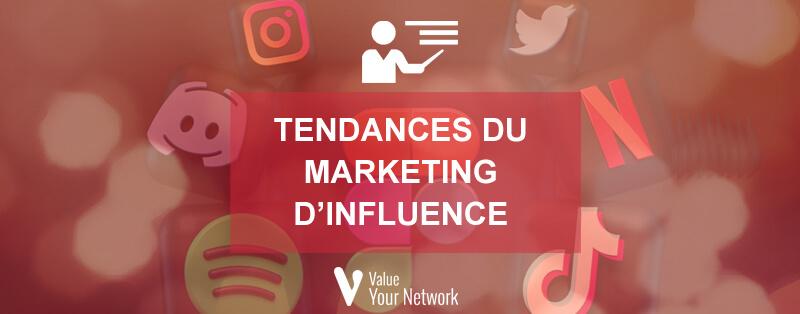Influencer marketing has become a key element of brand promotion strategies in the age of social networks.
Influencers, with a loyal and engaged audience, allow companies to reach new consumers and strengthen their brand image. In this article, we will explore the main trends in the influencer marketing and how they are transforming the way brands interact with their audiences.
Micro-influencers and nano-influencers :
Whereas influencers with millions of subscribers still attract the attention of brands, the emergence of micro-influencers (10,000 to 100,000 subscribers) and nano-influencers (less than 10,000 subscribers) offers new opportunities. These niche influencers often have a closer relationship with their audience, which translates into higher engagement and greater authenticity.
Brands are increasingly investing in partnerships with smaller influencers, recognizing the value of their personal connection with their audience and their potential for generating authentic engagement.
User-generated content (UGC) :
User-generated content has become a major trend in influencer marketing. By encouraging customers and influencers to share their experiences with products, brands can benefit from authentic, engaging content that builds brand trust.
Brands are incorporating more user-generated content into their influencer marketing campaigns, with a focus on authenticity and building trust with their audience.
Transparency and disclosure :
Transparency and disclosure have become key issues in influencer marketing, as regulators demand greater clarity on paid partnerships between brands and influencers. Influencers are now required to clearly disclose sponsored collaborations, using hashtags such as #ad or #sponsored.
Brands and influencers need to be transparent about their sponsored partnerships, making sure they comply with current regulations and building a relationship of trust with their audience.
Diversity and inclusion:
Diversity and inclusion have become central concerns in influencer marketing, as brands seek to work with influencers representing a variety of backgrounds and experiences. By collaborating with diverse influencers, brands can address a wider audience and promote an image of openness and inclusivity.
Brands are increasingly investing in partnerships with influencers from different backgrounds, to reflect the diversity of their audience and promote an image of openness and inclusivity.
Influencer marketing on new platforms:
While traditional platforms like Instagram, Facebook, and YouTube continue to be popular for influencer marketing, new platforms like TikTok and Clubhouse are emerging as important promotional channels. Brands are now exploring these platforms to reach younger, more engaged audiences, adapting to platform-specific content formats.
Brands are extending their reach by investing in influencer marketing on new platforms, adapting their content and approach to meet user expectations on each platform.
Influencer marketing trends are evolving rapidly, and brands need to stay up to date to make the most of this promotional strategy. By partnering with niche influencers, focusing on authenticity, transparency, diversity and inclusion, and exploring new platforms, brands can maximize the impact of their influencer marketing campaigns and reinforce their image with their audience. Influencer marketing will continue to be a key tool for brands seeking to stand out from the crowd and forge lasting bonds with their customers.
Launch unique campaigns with our expert influencers!
Influencer marketing is constantly evolving and transforming the way brands are promoted. To take advantage of these trends and become an advertiser, collaborate with high-engagement influencers for influence campaigns marketing. Please contact us at the following address: contact@valueyournetwork.com. Together, we'll create your next influencer marketing campaign with our talented influencers and boost your brand's visibility.

